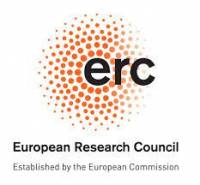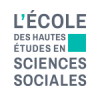SEE ALSO PUBLIC REACH WEB PAGE .
Projet REACH : Raising Co-creativity in Cyber-Human Musicianship
An ERC (European Research Council) Advanced Grant .
PI: Gérard Assayag
Co-creativity between humans and machines will lead to the emergence of distributed and performative information structures involving the cooperation of artificial and human agents with a significant impact on human practices, knowledges and cultures. The generative learning of symbolic representations from physical and human signals, and the understanding of the artistic and social strategies of improvised interactions will help us to better understand the dynamics of cooperation (or conflict) inherent in cyber-human networks.
To this effect, the REACH project aims to understand, model and develop musical co-creativity between humans and machines through improvised interactions, allowing musicians of all educational levels to develop their skills and increase their individual and social creative potential. Indeed, improvisation is at the very heart of all human interactions, and music is a fertile ground for developing models and tools of creativity that can be generalized to other activities, due to the richness of its structures and constraints that foster the emergence of cooperative behaviour and highly integrated courses of action. REACH will study "shared musicality" at the intersection of the physical, human and digital spheres, as an archetype of distributed intelligence, and will produce models and tools to better understand and encourage human creativity in a context where it is increasingly intertwined with computation.
The research objective of this inter-disciplinary project is to model and enhance co-creativity as it arises in improvised musical interactions between human and artificial agents, in a spectrum of practices spanning from interacting with software agents to mixed reality involving instrumental physicality and embodiment. Such creative interaction strongly involves co-improvisation, as a mixture of more or less predictable events, reactive and planned behaviors, discovery and action phases, states of volition or idleness. Improvisation is thus at the core of this project and indeed a fundamental constituent of co-creative musicianship, as well as a fascinating anthropological lever to human interactions in general. The outline of the project unfolds as follows:
- Understanding, modelling, implementing music generativity and improvised interaction as a general template for symbiotic interaction between humans and digital systems (cyber-human systems)
- Creating the scientific and technological conditions for mixed reality musical systems, based on the interrelation of creative agents and active control in physical systems.
- Achieving distributed co-creativity through complex temporal adaptation of creative agents in live cyber- human systems, articulated to field experiment in musical social sciences.
These three directions are already innovative and ambitious in their own right. Setting up a synergy between them, in order to foster understanding of co-creativity between natural and artificial beings on a socially significant scale, is an entirely novel initiative. It is the first organized interdisciplinary attempt at deciphering and shaping cyber-human co-creativity, an emerging field of study obviously called to considerable developments in the digital era. Revealing the mechanisms of co-creativity in music will also be a remarkable projector on creativity in general, as music is one of the most highly organized, interactive and complex human activity — at the same time an abstract, sensitive and physical one, yet profoundly shaped by communication and improvisation, and as such a powerful metaphor of human creative interactions.
International Research Partners / Members
PR Shlomo Dubnov, U.C. San Diego Music Dpt, Director Center for Research in Entertainment and Learning, CALIT2 Institute
PR Tatsuya Harada, Research Center for Advanced Science and Technology The University of Tokyo, Team leader at RIKEN AIP, Vice director of Research Center for Medical Bigdata at NII
Team
- Gérard Assayag PI, Shlomo Dubnov UCSD PI, March Chemillier EHESS PI
Researchers
Mikhail Malt, Ircam Georges Bloch, Ircam Pierre Saint-Germier, Ircam Vincent Lostanlen, LS2N Ross Greer, UCSD Taylor Berg-Kirkpatrick, UCSD
Engineers
Joakim Borg, Ircam
PhD Candidates
- Ke CHen, UCSD
- Vinesh Gokul, UCSD
- Tornike Karchkhadze, UCSD
- Jingwei Liu, UCSD
- Johann Rabearivelo, IRCAM/EHESS
- Marco Fiorini, IRCAM
- Orian Sharoni, IRCAM
- Hao-Wen Dong, UCSD
- Gonzalo Romero, IRCAM
- Jingwei Liu, UCSD
- Nicolas Brochec, Geidai Tokyo
Post-Docs
- Tristan Carsault, 2021-2022
- Daniel Brown, 2023-2024
- Sabina Covarrubias 2023-2024
- Jose-Miguel Fernandez 2023-2025
- Josephine Calendra 2024-2025
- Yuri Prado, EHESS
- Paul Lascabettes, Ircam, U. Strasbourg
Interns
- Ilian Ben-Amar, Intern Bsc (Aix Marseille U.), 2021
- Benjamin Feldman, Intern Engineering Sch., Centrale Supelec, 2021
- Pierre Thiel, Master ATIAM, 2022
- Seraphin Costa, Master U. Nantes, 2022
- François Chauffard,licence PSL, stage d’observation, 2022
- Merlin Chao, Ecole Centrale, 2024
- Gil Geva, Reichmann Institute, 2023
Visitors
Constantin Basica, Stanford Barbara Nerness, Stanford Georges Lewis, Columbia
Musicians
- Joëlle Léandre
- Rémi Fox
- Steve Lehman
- Bernard Lubat
- Georges Bloch
- Hervé Sellin
- Benny Sluchin
- Pavlos Antoniadis
- Charles Kély
- …
Readings
Events
Reach organizes the next Improtech Workshop - Festival in Marseille, from 19 - 24 october 2022 ikmarseille.ircam.fr




